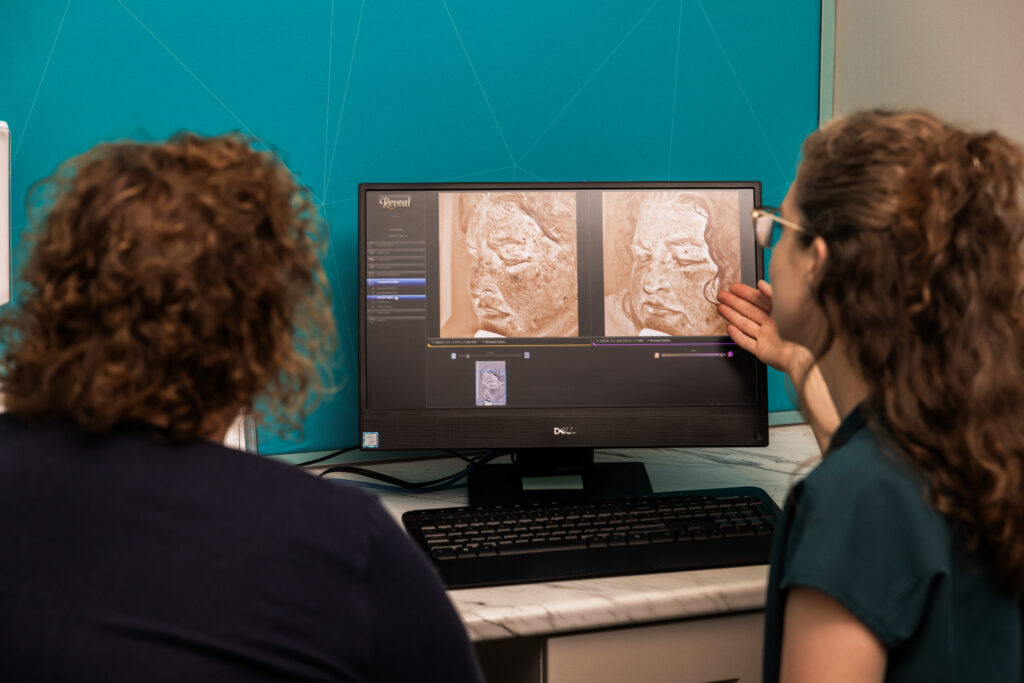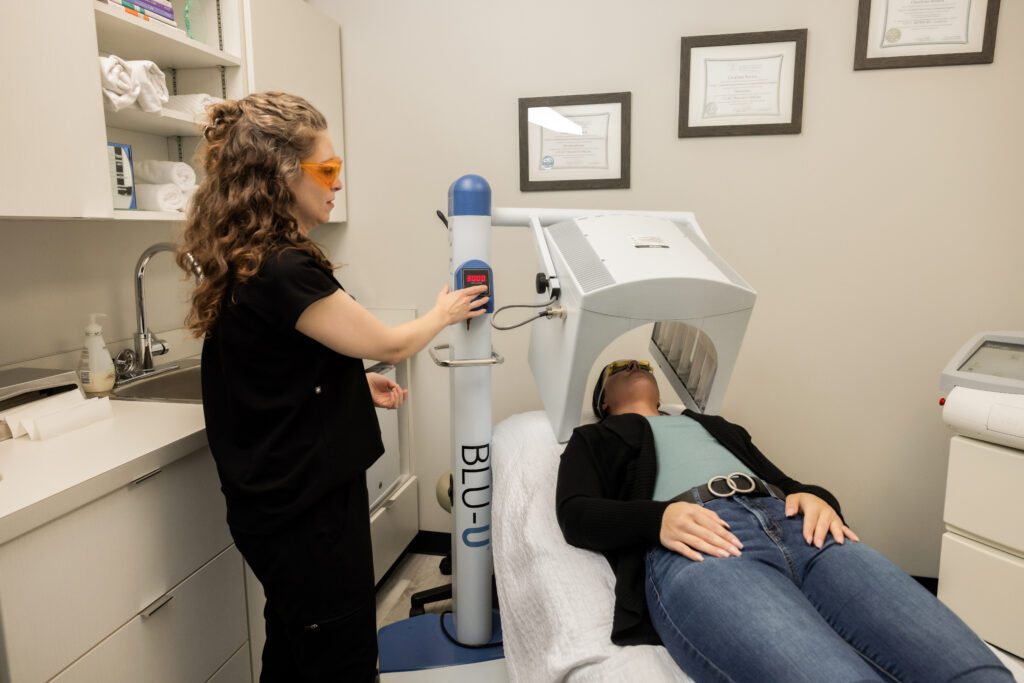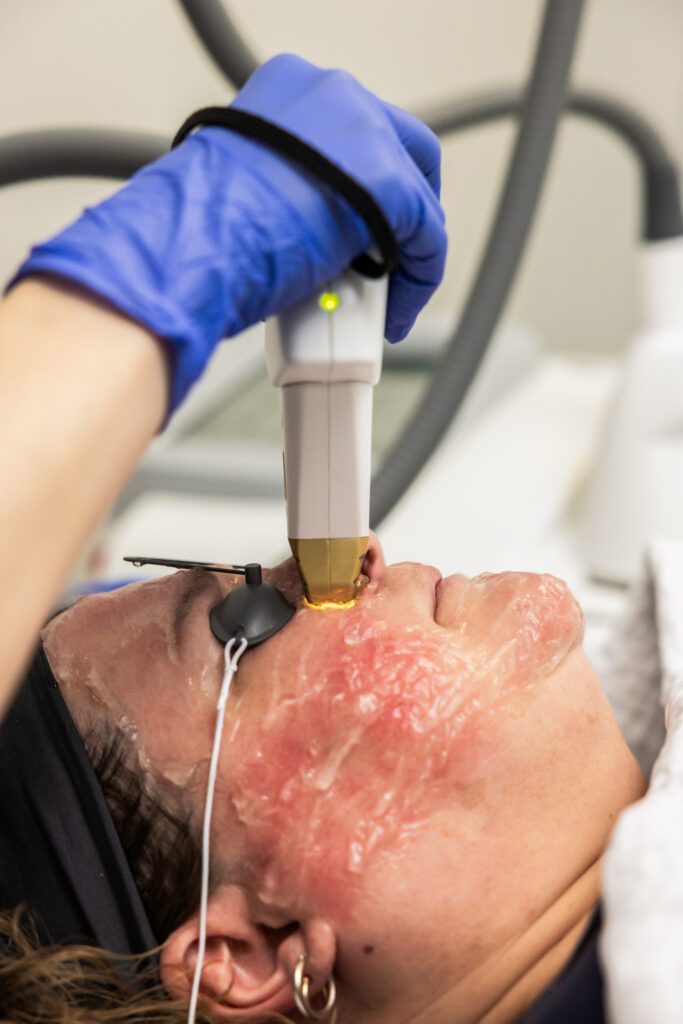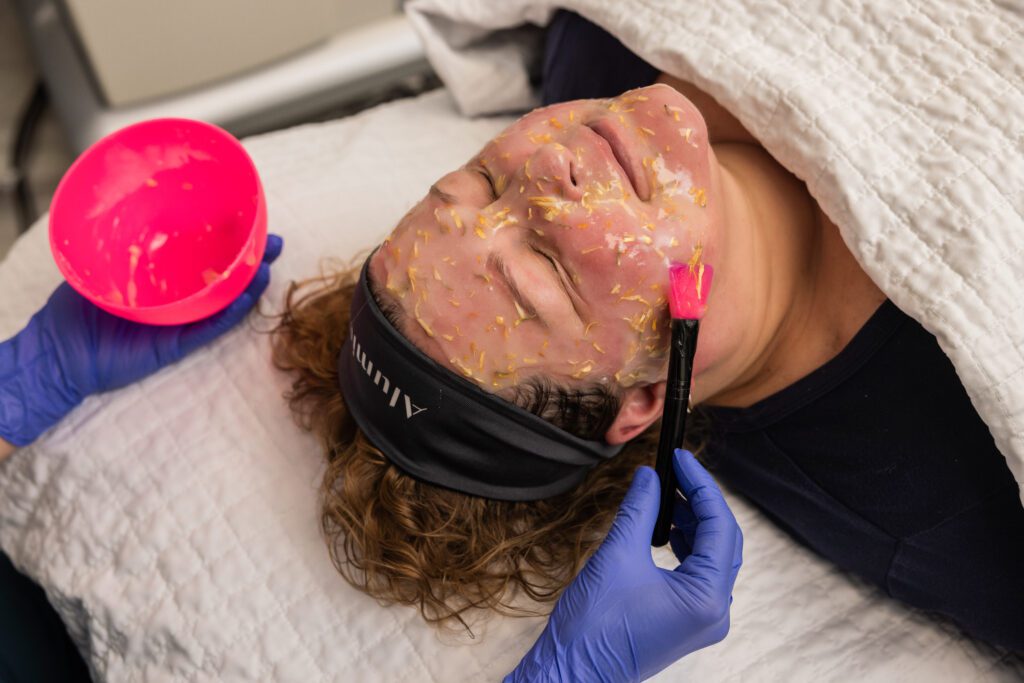
Understanding the Connection Between Nutrition & Skin Health
Did you know that your skin is the largest organ in your body?
It serves as your first line of defence against environmental factors.
You can help to nourish your skin by eating a balanced diet rich in essential nutrients which can significantly enhance its appearance and overall health.
The Link Between Diet and Skin Health
Your diet plays a crucial role in maintaining your skin’s glow and elasticity. Nutrients, vitamins, and hydration all contribute to a radiant complexion and overall skin vitality.
Key Nutrients for Healthy Skin
You can boost your skin health by incorporating essential nutrients into your diet:
- Omega-3 fatty acids, found in salmon and nuts, help maintain skin elasticity and hydration.
- Antioxidants in fruits and vegetables fight free radicals and prevent premature aging.
- Proteins support collagen production, keeping skin firm and resilient.
The Power of Vitamins

Did you know that vitamins A, C, and E are essential for skin health?
- Vitamin A (found in carrots and sweet potatoes) aids in skin repair and acne management.
- Vitamin C (abundant in citrus fruits) boosts collagen production for firmer skin.
- Vitamin E (found in nuts and spinach) helps protect against sun damage.
Hydration and Skin Health
Hydration is the cornerstone of youthful, glowing skin.
Drinking 8-10 glasses of water daily helps maintain skin elasticity and flush out toxins. Incorporate water-rich foods like cucumbers, watermelon, and oranges into your diet for an extra hydration boost.
That is why our clinic loves vitamin drips because they can deliver essential nutrients and hydration directly into your bloodstream, promoting skin health from the inside out.
These drips contain a blend of vitamins, minerals, and antioxidants tailored to your skin’s needs.
Get our Straight Drippin’ membership and you can stay hydrated throughout every season!
The Impact of Diet on Skin Conditions

Did you know that your diet can help manage skin conditions like acne, eczema, and psoriasis?
Nutritional Approaches to Acne
A low-glycemic diet rich in whole grains, nuts, and seeds can help prevent breakouts. Zinc and vitamin A are particularly beneficial for reducing inflammation and promoting clear skin.
Managing Eczema and Psoriasis
Omega-3 fatty acids, antioxidants, and probiotics (found in yogurt and fermented foods) support skin health by reducing flare-ups and strengthening the immune system.
Anti-aging and Photodamage Prevention
You can slow down aging by consuming antioxidant-rich foods like leafy greens and berries.
Green tea and healthy fats from avocados and olive oil also protect against sun damage and improve hydration.
Advanced Skin Treatments for Optimal Skin Health

While nutrition and hydration lay the foundation for healthy skin, we are able to help assess and treat skin concerns.
Our team offers free consultations which can take a closer look at your skin with our reveal camera. We can personalize treatment plans with recommendations for your skin concerns. We can also recommend an appointment with Dr. Dekker to address possible underlying causes for the skin issues.
Dr. Dekkers’s skin assessments can include blood work. Dr. Dekker’s treatment plan usually includes prescriptions, products, and treatment recommendations. Treatment recommendations can help calm active flare-ups or reduce scarring.
Here are some treatments we recommend!
1.Acne (Flare-Ups Can be Caused by Diet)

Acne is often linked to inflammation, hormonal imbalances, and poor gut health, which can be influenced by diet. Treatments that address these root causes include:
- Microneedling with PRP (Platelet-Rich Plasma): Stimulates collagen production, reduces inflammation, and helps heal acne scars.
- Chemical Peels: Exfoliate the skin, unclog pores, and reduce acne breakouts. Salicylic acid peels are particularly effective for acne-prone skin.
- Blu-U Photodynamic Therapy: Targets acne-causing bacteria and reduces inflammation, making it ideal for stubborn breakouts.
- Medical-Grade Facials: Deep-cleaning facials with ingredients like salicylic acid or benzoyl peroxide can help manage acne and prevent future flare-ups.
2. Rosacea (Triggered by Diet and Inflammation)

Rosacea is often worsened by spicy foods, alcohol, and caffeine, which can cause flushing and inflammation. Treatments to soothe and manage rosacea include:
- IPL (Intense Pulsed Light) Photofacial: Reduces redness, visible blood vessels, and inflammation associated with rosacea.
3. Eczema (Can be Linked to Gut Health and Allergies)
Eczema is often tied to food allergies, gut imbalances, and inflammation. Treatments focus on repairing the skin barrier and reducing irritation:
- Medical Grade Facials: These facials are specific to help treat your Eczema.
4. Dehydrated Skin (Can be Caused by Poor Hydration and Nutrition)

Dehydrated skin lacks water, often due to insufficient hydration, excessive caffeine or alcohol intake, or a diet low in essential fatty acids. Treatments to restore hydration include:
- Dermaplaning: Removes dead skin cells and peach fuzz, allowing better absorption of hydrating products.
- Medical-Grade Facials: Customized facials with hyaluronic acid and other hydrating ingredients to replenish moisture.
- Vitamin Drips: Deliver hydration-boosting nutrients like vitamin C, B vitamins, and electrolytes directly into the bloodstream.
- Hydro Jelly Mask: Helps to hydrate your skin!
Book a free consultation with us to see if any of these treatments are right for you!
Why Choose Dr. Dekker and Our Team?

Dr. Dekker specializes in advanced skin assessments, including blood work, to identify and address the root causes of skin issues.
Our administrative team ensures that patients requiring urgent care are prioritized, while self-referred patients are welcomed with transparent communication about wait times.
We want you to feel comfortable in your skin so book a consultation with us and we can help you get healthy skin!


